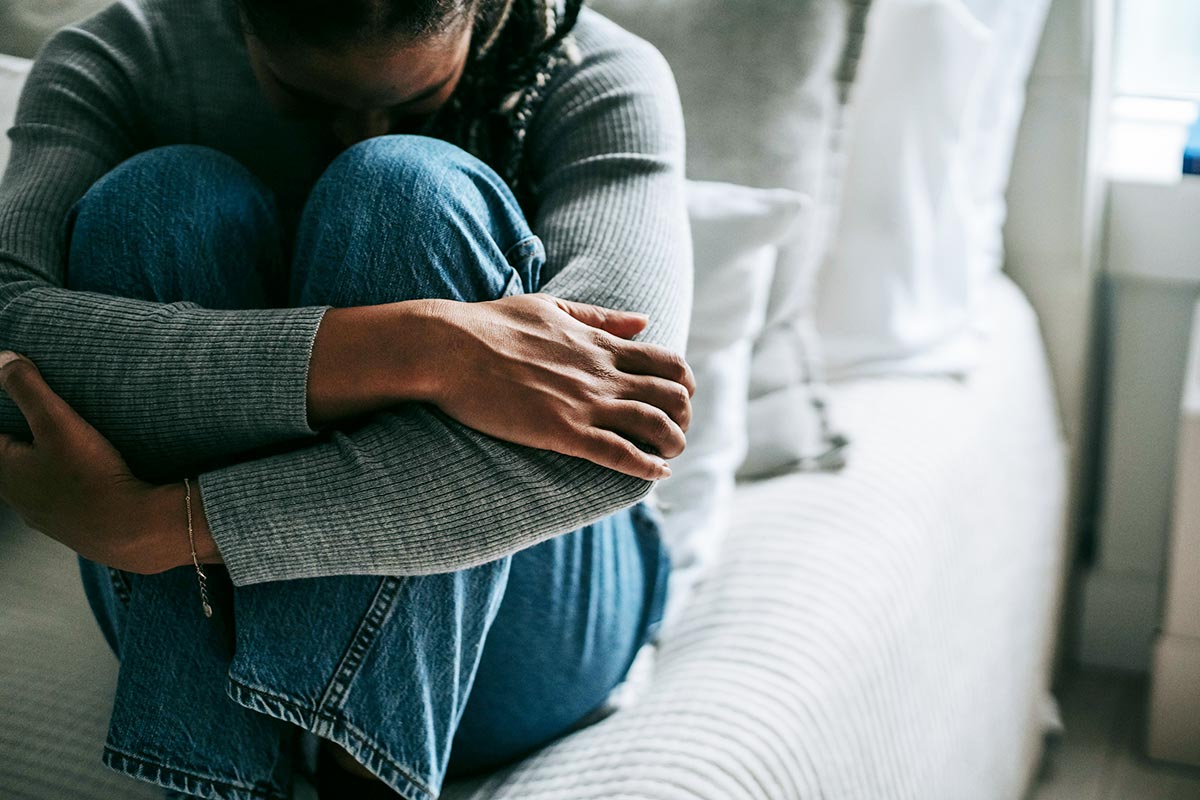 If you or a loved one is struggling with thoughts of self-harm, suicide, and dying, it’s important to reach out and talk to a professional. That’s even true if that ideation is passive, because even if it’s not pressing, suicidal ideation is never a good sign. It’s a warning that you need help, and you need to get it before the problem becomes worse.
If you or a loved one is struggling with thoughts of self-harm, suicide, and dying, it’s important to reach out and talk to a professional. That’s even true if that ideation is passive, because even if it’s not pressing, suicidal ideation is never a good sign. It’s a warning that you need help, and you need to get it before the problem becomes worse.
Passive suicidal ideation is, in short, the desire to die without having a plan to achieve that. That means you face a feeling of wanting to die, intrusive thoughts of self-harm or killing yourself, or feelings of not wanting to live. If you’re experiencing that, that is enough warning sign to seek help and to talk about it with a mental health professional. However, we’ll go more into detail on that in the rest of this article.
What is Passive Suicidal Ideation
Passive suicidal ideation is the desire to die, to kill yourself, or a lack of desire to keep living. However, it’s called “passive” because the person experiencing it hasn’t made an active or concrete plan to make these thoughts a reality. In fact, they might never do so. For many people, passive suicidal ideation is unwelcome and unpleasant. For others it’s an early warning sign of actually wanting to die and will eventually solidify into an active want to die. That change can be triggered by bad things happening, mental health getting worse, or by trauma. However, it can happen.
In either case, passive suicidal ideation is not something to just live with. It reduces your quality of life, it harms your mental health, and it can turn into active suicidal ideation over time. That means you should always look for and get help if you are experiencing it. Even talking about it with a professional can give you insight into what your coping mechanisms are, how you can redirect thoughts, and how you can work towards overcoming those thoughts.
What are the Signs of Passive Suicidal Ideation in Others
Passive suicidal ideation can take a lot of different forms. For many people, it means expressing or showing thoughts of wanting to die. Others will never voice those thoughts aloud. That can mean you’ll never notice or see suicidal ideation until it’s too late. However, you can look for signs like:
- Expressing a desire to die. Even if it’s said as a joke, it is something you should take seriously, talk about, and try to figure out how real the sentiment is.
- Researching or looking into how suicide works and what types of suicide methods work. Even things like knowing suicide statistics and what kinds of suicide attempts work can be a red flag. For example, if someone knows why a suicide method is the most effective, that means they’ve looked it up, and that means they had motivation to do so.
 You can also look for statements like:
You can also look for statements like:
- “I want to die”
“life just doesn’t feel worth living” - “I hope this car crashes”
- “I could step in front of this bus”
- “My loved ones would be better off if I were never born”
- “I don’t want to be alive anymore”
- “Everything is too hard to cope with”
- “I just want to sleep and not have to deal with life”
These statements, and others like them, all express passive suicidal ideation.
 You can also look for signs of poor mental health like:
You can also look for signs of poor mental health like:
- Increased reliance on substances
- Depression
- Self-isolation or avoiding friends and family
- Expressions of or feelings of loneliness
- Changes in behavior such as self-care
- Changes in sleeping patterns
- Self-harm
- Feelings of hopelessness
These latter symptoms can map to a very large number of mental health problems. However, they all point to the fact that this person is not doing well and probably needs help.
Are Suicidal Thoughts Normal?
 In 2021, an estimated 12.3 million Americans seriously thought about Suicide. This means that for almost 4% of the population, suicide is a normal thing to think about. At the same time, normal does not mean healthy, good for you, or something you have to live with.
In 2021, an estimated 12.3 million Americans seriously thought about Suicide. This means that for almost 4% of the population, suicide is a normal thing to think about. At the same time, normal does not mean healthy, good for you, or something you have to live with.
People think about dying all the time. Today, someone dies by suicide almost every 11 minutes in the United States. The fact that something is normal does not mean that you should leave it alone. Instead, it means that it’s normal to need help and it should be normal to ask for that help.
Coping with Passive Suicidal Ideation
Therapy and mental health support is the best way to cope with suicidal ideation. Professional help can allow you to understand what’s underneath suicidal ideation, to find and change behavior and patterns in your life that contribute to feeling that way, and to build habits and change that improve your life so you can move past suicidal ideation and get back to enjoying your life. And, when therapy isn’t enough, a mental health professional can help you to get treatment and medication to help balance your mood so you can improve quality of life that way.
Managing suicidal ideation also means managing your life and the people in it. That means:
- Managing your routines so you have structure and support
- Manage energy by going to bed and getting up at the same time every day, making sure you get plenty of rest, and taking steps to ensure your quality of sleep is good
- Keep your space clean by spending 15-20 minutes per day cleaning up
- Take time to socialize and spend time with people who are fun and doing fun things. Consider what things you like to do and make sure you do them, even if you’re not experiencing joy in doing them right then
- Make sure you have what you need to feel good. That means exercising 30-60 minutes per day most days and eating nutritious food about 80% of the time.
- Minimize caffeine and alcohol intake and try to stick to recommended daily limits or less for both
Essentially, if you take steps to give yourself structure and routine, put effort into taking care of yourself, and keep your space clean, you’re giving yourself a good basis for mental health. On top of that, you should add things you like to do like hobbies (crafting, sports, games) and spending time with friends and family so that you get to enjoy things as well. That won’t make you feel “not depressed”, but it will give you a good baseline for feeling good about yourself and your life.
 When Should You Seek Help?
When Should You Seek Help?
In any case where you’re experiencing suicidal ideation, you should be seeking help. If you have recurring thoughts of death, wanting to die, not wanting to live, self-harm, or suicide, you should be talking to a mental health professional. Often, that starts with talking to your doctor who can recommend you to a therapist or to other treatment. However, you can also reach out and ask for treatment directly from a mental health clinic or center.
Suicidal ideation is always a warning that something is wrong, and it is always a good sign to reach out and ask for help. If you or a loved one is experiencing even passive suicidal ideation, the time to seek out help is now.



























